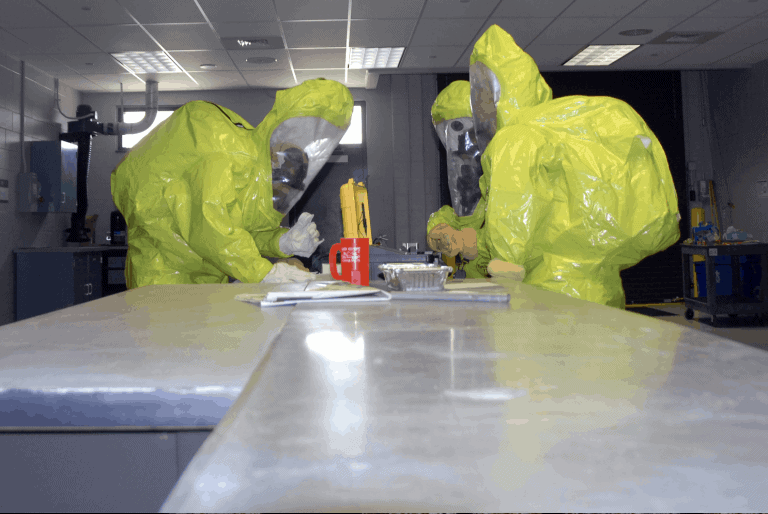Building Trust in Professional Relationships: A Guide for Modern Professionals
In today's fast-paced and interconnected professional landscape, the ability to cultivate trust in professional relationships is indispensable. Trust serves as the cornerstone of successful collaborations, effective teamwork, and overall workplace harmony.
However, in the modern world, where virtual interactions often take precedence over face-to-face communication, building and maintaining trust can present unique challenges. This guide aims to provide modern professionals with actionable strategies and insights to navigate these challenges and foster a culture of trust within their professional spheres.
From understanding the dynamics of trust in the workplace to overcoming common obstacles, this comprehensive guide offers a roadmap for professionals seeking to elevate their relationships and achieve greater success in their professional endeavors.
Key Takeaways
- Trust is essential for effective team collaboration, communication, and performance.
- Effective communication strategies such as active listening, assertive communication, and open dialogue are crucial for building trust.
- Establishing ethical boundaries and maintaining professional integrity are key to building trust in professional relationships.
- Nurturing authentic connections through active listening, transparency, and empathy is essential for developing trust in professional relationships.
Understanding Trust in the Workplace
Understanding trust in the workplace is essential for fostering a positive and productive professional environment. Trust is the foundation of all workplace dynamics and is crucial for effective team collaboration. When team members trust each other, they are more likely to communicate openly, share ideas, and work together towards common goals. Trust in the workplace leads to higher levels of engagement, job satisfaction, and overall performance.
Workplace dynamics are greatly influenced by the level of trust among colleagues. Trust fosters a sense of psychological safety, where team members feel comfortable taking risks and being vulnerable in front of each other. This, in turn, leads to increased innovation and creativity within the team. When team members trust one another, they are more likely to support each other through challenges and conflicts, leading to a more cohesive and resilient team.
Effective team collaboration relies on trust as well. When team members trust each other, they are more willing to delegate tasks, share responsibilities, and rely on each other's expertise. This creates an environment where individuals feel empowered to contribute their best work, knowing that their efforts are valued and respected by their colleagues.
Effective Communication Strategies
Effective communication strategies are vital for establishing clear and meaningful interactions within professional relationships. In the fast-paced modern workplace, mastering effective communication is essential for success.
Here are three key strategies to enhance communication in professional relationships:
- Active Listening: Actively listening to colleagues and clients is crucial for understanding their perspectives and needs. It involves fully concentrating, understanding, responding, and remembering what is being said. By practicing active listening, professionals can build rapport, demonstrate empathy, and foster trust within their professional relationships.
- Assertive Communication: Assertive communication involves expressing one's thoughts, feelings, and needs in a direct and respectful manner. It allows professionals to communicate their ideas effectively while also respecting the perspectives and boundaries of others. By using assertive communication, professionals can navigate difficult conversations, set clear expectations, and maintain healthy professional relationships.
- Open and Honest Dialogue: Encouraging open and honest dialogue creates a transparent and collaborative environment. It enables professionals to address issues proactively, share feedback constructively, and build mutual understanding. By fostering open and honest dialogue, professionals can cultivate trust and strengthen their professional relationships.
Establishing Ethical Boundaries
To maintain professional integrity and foster trust, it is essential to establish clear and ethical boundaries in all professional relationships. Ethical decision making is fundamental in setting these boundaries. Professionals must prioritize ethical considerations when making decisions that impact their relationships with clients, colleagues, and stakeholders. This involves adhering to moral principles, industry regulations, and legal standards. It also requires the ability to navigate complex situations where competing interests or values may arise. By consistently applying ethical decision-making processes, professionals can ensure that their actions align with their values and obligations.
Boundary setting is another crucial aspect of establishing ethical boundaries. This involves clearly defining the limits of professional engagement, such as delineating the scope of services, respecting confidentiality, and managing conflicts of interest. Effective boundary setting requires open communication, active listening, and a willingness to address any potential boundary violations. Professionals should also be mindful of power dynamics and strive to create a balanced and respectful environment in their interactions.
Nurturing Authentic Connections
When nurturing authentic connections in professional relationships, prioritizing genuine communication and mutual understanding is paramount. Building trust and rapport in the workplace requires intentional effort and a commitment to fostering genuine interactions.
To nurture authentic connections, professionals should consider the following:
- Active Listening: Engage in active listening to demonstrate genuine interest in the thoughts and perspectives of colleagues. By actively listening and providing thoughtful responses, professionals can create an environment where authentic connections can flourish.
- Transparency: Foster trust through transparency in communication. Being open and honest about intentions, challenges, and successes can strengthen professional relationships and build rapport based on authenticity.
- Empathy: Cultivate empathy by seeking to understand the emotions and experiences of others. Demonstrating empathy in professional interactions can lead to deeper, more meaningful connections with colleagues.
Overcoming Challenges in Trust-Building
Despite the inevitable obstacles that may arise, cultivating trust in professional relationships requires a strategic and empathetic approach to overcome challenges.
Building rapport is essential in overcoming trust-building challenges. It involves actively listening to colleagues, showing genuine interest in their ideas, and finding common ground. By doing so, individuals can establish a foundation of understanding and respect, paving the way for trust to develop.
Additionally, fostering teamwork is crucial in overcoming trust-building challenges. Encouraging open communication, collaboration, and recognizing individual strengths within a team can help to mitigate potential conflicts and misunderstandings. When team members feel supported and valued, they are more likely to trust one another and work towards common goals.
Furthermore, addressing conflicts or misunderstandings directly and transparently can help in overcoming trust-building challenges. Clear, respectful communication can help to resolve issues and prevent them from escalating, ultimately strengthening trust within professional relationships.
Conclusion
In the professional world, trust is the cornerstone of successful relationships. By understanding the importance of effective communication, ethical boundaries, and authentic connections, modern professionals can overcome challenges and build trust with their colleagues and clients.
Trust is like a sturdy building, requiring a strong foundation and careful maintenance to withstand the test of time. With dedication and commitment, professionals can cultivate trust and create lasting, meaningful connections in their professional relationships.





